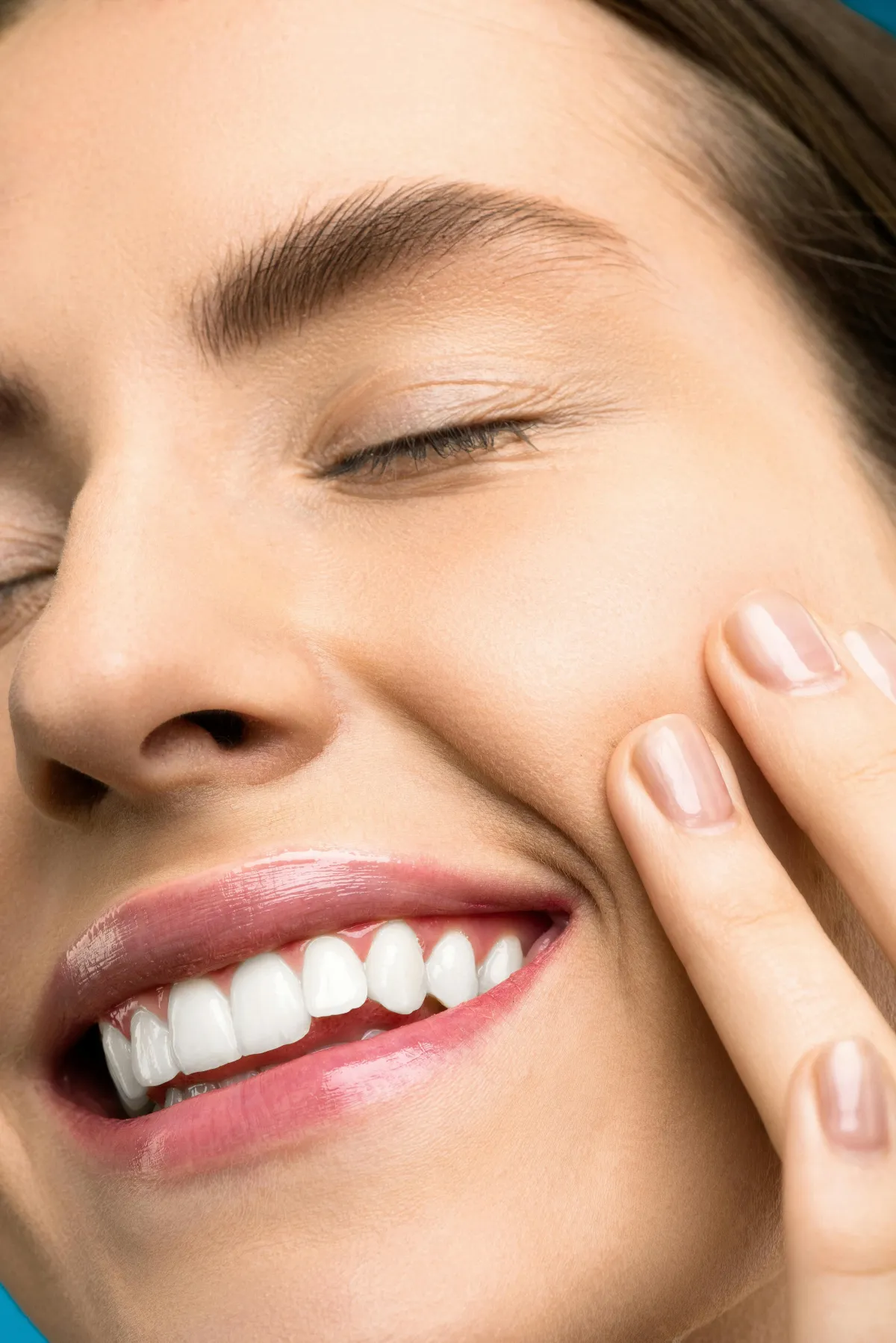

Tomorrow's Dentistry Today

Tomorrow's Dentistry Today
BLOG

Torn Gum Around a Tooth? Causes, Treatment & When to See a Dentist
Torn Gum Around a Tooth? Here’s What It Means and How to Treat It
Understanding Torn Gums: An Overview
A torn gum around a tooth may sound like a minor inconvenience, but it can indicate underlying oral health issues that need attention. Whether it occurs due to aggressive brushing, an injury, or gum disease, a torn gum can lead to discomfort, infection, and long-term dental problems if left untreated.
This guide covers everything you need to know about torn gum tissue—what causes it, how to treat it, and when to see your dentist. If you're searching online for answers using terms like "torn gum around tooth" or "gum injury treatment," you've come to the right place.

Common Causes of Torn Gum Around a Tooth
Torn gum tissue can result from several triggers. Identifying the root cause is essential for proper treatment and to prevent recurrence.
1. Aggressive Brushing or Flossing
Brushing too hard or using a toothbrush with hard bristles can damage your gums, especially around sensitive areas like the gumline. Similarly, flossing with excessive force can cause cuts or tears in the gum tissue.
2. Gum Disease (Gingivitis or Periodontitis)
Inflamed or infected gums become fragile and more susceptible to tearing. If you have persistent bleeding, swelling, or tenderness, gum disease could be the underlying issue.
3. Poor-Fitting Dental Appliances
Braces, dentures, or retainers that don't fit well can rub against your gums, leading to irritation and tearing over time.
4. Physical Trauma or Injury
An accidental fall, sports injury, or biting on a hard object can tear the gum tissue. These injuries are more common in children and active adults.
5. Oral Surgery or Dental Procedures
Sometimes, dental treatments like tooth extractions or deep cleanings can result in temporary gum damage. While the tissue usually heals on its own, it may require extra care.
Signs and Symptoms to Watch For
Not all gum tears are immediately noticeable, especially if they are small. However, there are several signs to watch out for:
Visible cut or flap in the gum
Localized bleeding around the affected tooth
Swelling or redness near the gumline
Pain or tenderness
Sensitivity to hot, cold, or sweet foods
Persistent bad breath (could indicate infection)
If you experience any of these symptoms, it’s important to consult a dental professional promptly.
How to Treat a Torn Gum at Home (Temporary Relief)
While you should always consult a dentist for torn gums, you can take steps at home to minimize discomfort and reduce the risk of infection until your appointment.
1. Rinse with Warm Salt Water
A saltwater rinse can soothe irritated tissue and reduce bacteria. Mix one teaspoon of salt in a glass of warm water and rinse gently.
2. Apply a Cold Compress
For swelling or pain, place a cold compress on the outside of your mouth for 10–15 minutes at a time.
3. Avoid Irritating Foods
Spicy, acidic, and crunchy foods can aggravate the tear. Stick to soft, bland foods until healing begins.
4. Use a Soft-Bristled Toothbrush
Switch to a toothbrush designed for sensitive gums and brush gently around the affected area.
Professional Treatments from a Dentist
Home care provides temporary relief, but professional dental treatment is essential to ensure proper healing and avoid complications like infection or gum recession.
1. Gum Cleaning and Debridement
If plaque or tartar buildup is contributing to the problem, your dentist will perform a professional cleaning to remove it.
2. Antibiotics or Antibacterial Rinse
In case of infection, your dentist may prescribe antibiotics or an antimicrobial mouthwash.
3. Stitching or Sutures
For deep or severe tears, sutures may be needed to promote proper healing and protect the area.
4. Adjustment of Dental Appliances
If braces or dentures are causing the tear, your dentist may adjust or replace them.
5. Gum Grafting
In cases of significant gum loss or recurring tears, a gum graft may be necessary to restore the tissue.
Preventing Future Gum Injuries
Prevention is always better than cure. Follow these tips to maintain healthy gums and avoid future injuries:
Brush gently with a soft-bristled toothbrush
Floss daily using proper technique
Visit your dentist every six months for checkups
Wear a mouthguard during sports
Avoid hard, sharp, or sticky foods
Ensure dental appliances fit correctly
Maintaining a healthy oral hygiene routine can dramatically reduce your risk of gum injuries.
FAQs About Torn Gums Around a Tooth
Q1. Can a torn gum around a tooth heal on its own?
Minor tears may heal without intervention, but it’s best to consult a dentist to rule out infection or underlying gum disease.
Q2. Is it an emergency if my gum is torn?
If you have severe pain, bleeding that doesn’t stop, or signs of infection (fever, swelling, pus), seek immediate dental care.
Q3. What happens if I ignore a torn gum?
Neglecting gum tears can lead to infection, worsening gum disease, or permanent gum recession.
Q4. Can children get torn gums too?
Yes, especially due to falls or accidents. Pediatric dentists are equipped to treat torn gums in children safely.
Q5. Will torn gums affect my teeth long term?
If treated promptly, most tears heal without long-term effects. Delayed treatment can lead to complications.
When to See a Winter Springs Dentist Near You
If you live in or around Winter Springs and are experiencing gum issues, don't wait. Seeing a qualified Winter Springs dentist near me ensures you receive timely, effective care tailored to your needs. Whether you require a minor cleaning or advanced gum treatment, local family dental care providers are equipped to help you heal and prevent further damage.
Advanced Dental Care - Winter Springs Dentist Near You
Address: 1315 Tuskawilla Rd Suite #113, Winter Springs, FL 32708
Phone: (407) 696-6700
Email: [email protected]

Tomorrow's Dentistry Today
Contact
Advanced Dental Care
Address
1315 Tuskawilla Rd, Ste.113, Winter Springs, FL 32708
Phone
(689) 304-8968
Fax
(407) 696-6633
Hours of Operation
Mon-Thurs: 7:30am - 4:00pm
If you have difficulty using our website,
please email us or call us at
(407) 696-6700 View the
ADA Accessibility Statement
© Copyright 2025. Advanced Dental . All Rights Reserved.
